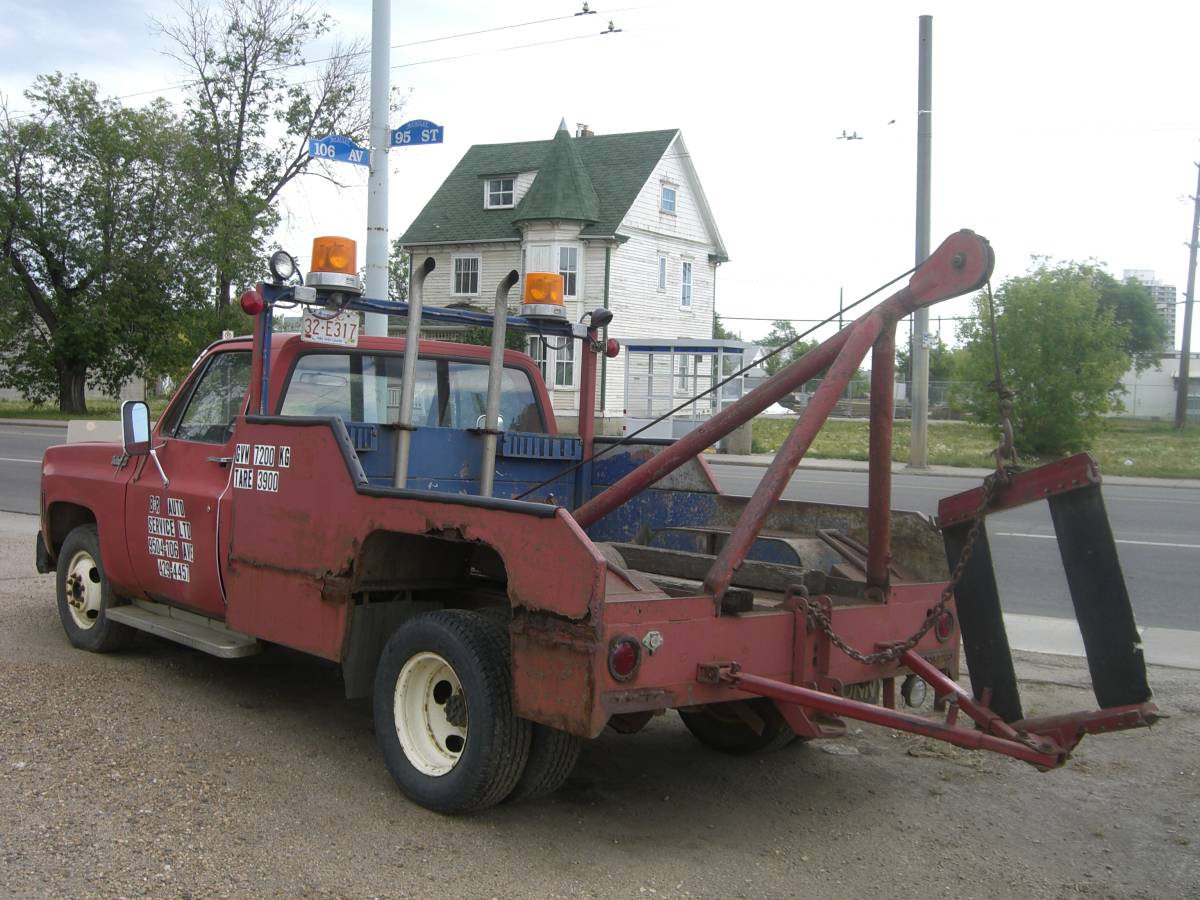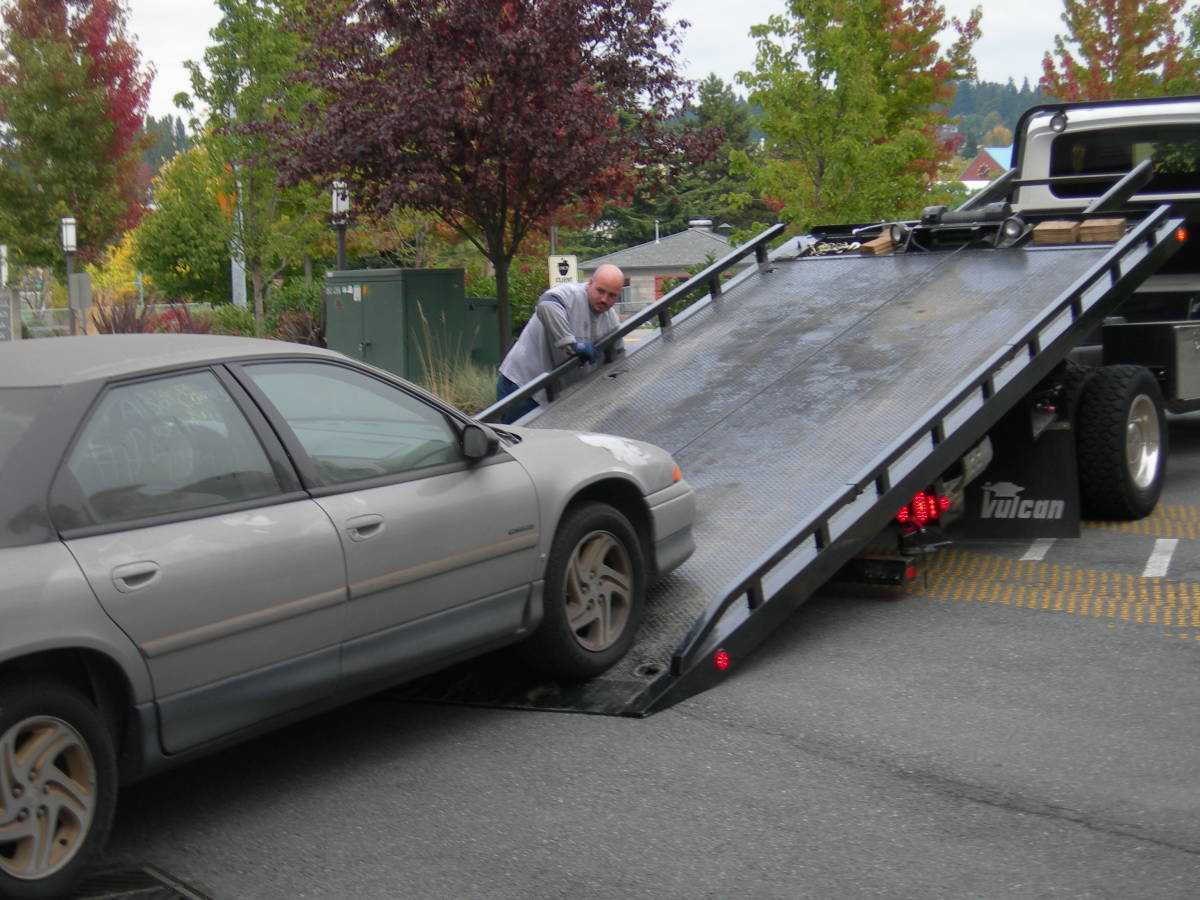
Local towing companies, including Cedar City-based All Ways Towing and Mountain Towing, are concerned with what they call “steering.” They allege they are losing business and money to other tow companies and car dealerships in the area because of inappropriate practices of favoritism by law enforcement and the dispatch center. The alleged problem has been occurring over the last 10 years or longer.
With the population growth in southern Utah leading to an increased number of vehicle collisions and disabled vehicles, the problem, according to the whistleblowers, appears to be getting bigger.
According to Utah laws, wrecker and recovery services are supposed to operate under a rotation system. Wrecker companies are designated to operate and respond in specific areas. If there is more than one service company in an area, they are put on a list and rotated to each accident or incident in turn. If a wrecker company is already on a service call or doesn’t have the equipment necessary, the next company is selected off of the rotation list. The owner or driver of a vehicle involved in the accident or incident, however, can request the towing company of their choice.
The term “steering” is when a tow truck company is called that has not been requested by the vehicle owner and is not next on the rotation list. The tow is “steered” by the law enforcement officer in charge of the incident to either a favored towing company or a local auto dealership who provides towing service in the area.
“Steering has been going on all over the State of Utah and it’s wrong,” said Steve Russell, president of the Utah Towing Industry. “Some officers in the area have become friends with towing operators and sometimes they do them a favor and steer the business to a certain wrecking company. This is not right.”
According to Russell, a meeting attended by Utah Congressman Johnny Anderson, who sits on the state transportation committee, and Major Michael Rapich, assistant superintendent of the Utah Highway Patrol, addressed the problem of steering. Also discussed in the meeting, was a pilot program that would stage tow trucks placed strategically during the rush hour in major cities in Utah. The meeting included Chad Shepick of the Utah Department of Transportation and the legislative liaison for the Department of Public Safety.
In the meeting, Russell stated that the issue of steering needed to be addressed with dispatchers.
“One issue is not knowing R-909 [Utah Administrative Codes regarding safety codes for tow truck operation] wrecker rotation rates and the frustrating circumstances of tow drivers having to drive up to 30 plus miles to quote a price to the motorist and then being turned away … which causes additional cost to the tow company owner,” said Russell. “My proposal to ‘familiarize’ dispatchers would eliminate costly dry runs, increase efficiency, and eliminate the need to put wreckers back on top of the rotation list and face the possibility of a dispatch shift change, which may skip that individual wrecker service all together.”
“The rules for wrecker services on the rotation list are set by the State of Utah,” said Sgt. Todd Royce with the Utah Highway Patrol. “There is a contract the wrecker service has to abide by. The first wrecker to be called would be the wrecking service preferred by the driver or owner of the vehicle. The main goal of the highway patrol trooper on the scene of the accident, though, is to safely get the roadway cleared. The trooper on scene makes the best decision possible to make it as fair and equitable for all parties involved.”
Utah Rule R714-600 delineates performance standards for tow truck motor carriers. According to the rule, when a sworn officer—which can be a local police officer, sheriff’s deputy, or highway patrol trooper—determines that a vehicle must be removed from an area, the officer must contact the dispatch center providing service for that location. The officer can then request that a tow truck from the rotation list be contacted in order to be dispatched to the scene of the incident. The officer provides the dispatch center with the location, make, model, and license number of the vehicle that is to be removed. It is then up to the dispatch center to determine which tow truck motor carrier to contact according to this rule. The vehicle owner has the option of contacting a specific recovery service if they choose.
The Utah Highway Patrol has the option of assigning a coordinator in each section office to create and maintain a rotation list of approved tow truck services in the area. The coordinator is then responsible for providing a copy of the list to the area dispatch center.
In order for recovery services to be on the towing rotation list for their area, that service must complete a Utah Highway Patrol Towing Rotation Application and Agreement and submit it to the area coordinator. If that wrecker service is consistently unavailable, causes disruptions to the dispatch center’s operations, or routinely fail to respond to incidents in a timely manner, they may be legally removed from the rotation.
Utah law also specifies that if the officer contacts the department dispatch center and requests the a recovery service respond to an incident, the dispatch center will immediately contact a service on the rotation list. Services are contacted in the order they appear on the towing list. If that service fails to respond or does not have the equipment necessary to respond to an incident, the dispatcher will contact the next towing service on the list.
This, according to several local tow truck companies is where steering comes into play. All Ways Towing and Transportation began doing business in Parowan in 1980. At that time, there were two wrecker services serving the area in and around Parowan. It included a designated area of Interstate 15 and State Route 143 to Brian Head, Enoch, Summit as well as additional outlying areas. Reese Automotive, a local auto repair shop also operated a wrecker business.
“When UDOT passed legislation making it more difficult to operate a towing company, Reese Automotive opted out of the towing business,” said Jim and Leann Miller, owners of All Ways Towing and Transportation. “The regulations included requiring wrecker companies to have two wreckers, including a large flatbed wrecker, and designated liability insurance amounts among other requirements. This left All Ways Towing and Transportation as the only Parowan-based wrecker service. Authorities decided to place All Ways Towing and Transportation into the Cedar City wrecker rotation. Wrecker services that qualify for the rotation schedule also have to meet certain qualifications, and Reese Automotive decided not to participate in the new regulations.”
The wrecker calls for All Ways Towing and Transportation virtually stopped once they were in the Cedar City rotation.
“It not only affected us but the motoring public and all concerned,” Miller said. “Now the officers in command of the scene were dispatching a wrecker from as far away as 20 miles, which resulted in a longer wait time to get the incident cleared up. The cost to the owner or driver of the vehicle increased because of the miles that had to be traveled by the towing company. Also, the owner of the vehicle had to possibly travel many miles to where the towing company took the car or truck to retrieve their belongings.”
The Millers, after operating a business in Parowan for many years, felt compelled to move their towing operation to Cedar City. They stated that this was the only way to compete with other companies in the area. That didn’t solve the rotation challenges though. They still were not being dispatched to many of the tow calls in the area, including calls on Interstate 15, state routes, and search and rescue calls.
“The dealerships in the area were, and currently still are, getting the majority of the calls. Perhaps up to 70 percent,” Miller said. “Parkway Motors, whose towing service is now called ‘Cedar City Towing and Motor Company,’ is still being given many of the towing calls. Even in the situation where the driver requests a certified AAA towing company, which would be Brackens Towing in St.George, and All Ways towing in Cedar, Cedar City Towing and Motor Company is dispatched. They are currently not an approved AAA wrecker service.”
Wayne Hall, owner of Mountain Towing in Cedar City, concurred.
“It has been a problem that has been going on for over a decade,” said Hall. “We have fought it to the point that is not only affecting our businesses but also our health. Multiple attorneys have been called in, even taken as far up the ladder as the attorney general of the state of Utah, but virtually nothing has been done. I believe it is a selective use of the rotation system. It could involve partnerships and even kickbacks, possibly even in the form of friendships, relatives, free oil changes, etc.”
Hall stated that the lone agency that is playing by the rules is the Iron County Sheriff.
“When it was brought to Iron County Sheriff Mark Gowers’s attention, the situation changed, and it has been a very fair system ever since,” Hall said. “When wreckers are called by an Iron County Sheriffs deputy, the rules are followed. However, the rotation policies of other agencies are still in question.”
“The Utah Department of Transportation’s concern is mainly safety and management at the scene of the incident,” said Kevin Kitchen, Region Four public information officer for the Utah Department of Transportation. “UDOT’s focus is how fast we can safely get the roadway back open, if it is blocked, while protecting the emergency personnel on scene and the motoring public. UDOT doesn’t really get involved with the rotation of the tow companies being dispatched to the scene, just the safe operation of the tow truck operators, emergency responders, and the public.”




